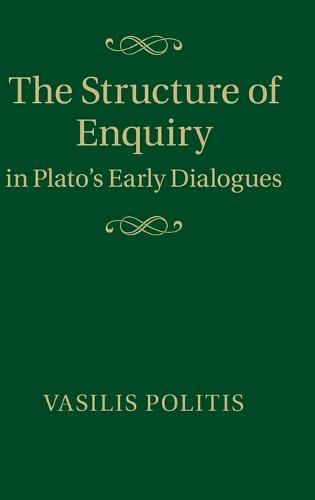Readings Newsletter
Become a Readings Member to make your shopping experience even easier.
Sign in or sign up for free!
You’re not far away from qualifying for FREE standard shipping within Australia
You’ve qualified for FREE standard shipping within Australia
The cart is loading…






This book proposes and defends a radically new account of Plato’s method of argument and enquiry in his early dialogues. Vasilis Politis challenges the traditional account according to which these dialogues are basically about the demand for definitions, and questions the equally traditional view that what lies behind Plato’s method of argument is a peculiar theory of knowledge. He argues that these dialogues are enquiries set in motion by dilemmas and aporiai, incorporating both a sceptical and an anti-sceptical dimension, and he contends that Plato introduces the demand for definitions, and the search for essences, precisely in order to avoid a sceptical conclusion and hold out the prospect that knowledge can be achieved. His argument will be of great value to all readers interested in Plato’s dialogues and in methods of philosophical argument more generally.
$9.00 standard shipping within Australia
FREE standard shipping within Australia for orders over $100.00
Express & International shipping calculated at checkout
This book proposes and defends a radically new account of Plato’s method of argument and enquiry in his early dialogues. Vasilis Politis challenges the traditional account according to which these dialogues are basically about the demand for definitions, and questions the equally traditional view that what lies behind Plato’s method of argument is a peculiar theory of knowledge. He argues that these dialogues are enquiries set in motion by dilemmas and aporiai, incorporating both a sceptical and an anti-sceptical dimension, and he contends that Plato introduces the demand for definitions, and the search for essences, precisely in order to avoid a sceptical conclusion and hold out the prospect that knowledge can be achieved. His argument will be of great value to all readers interested in Plato’s dialogues and in methods of philosophical argument more generally.